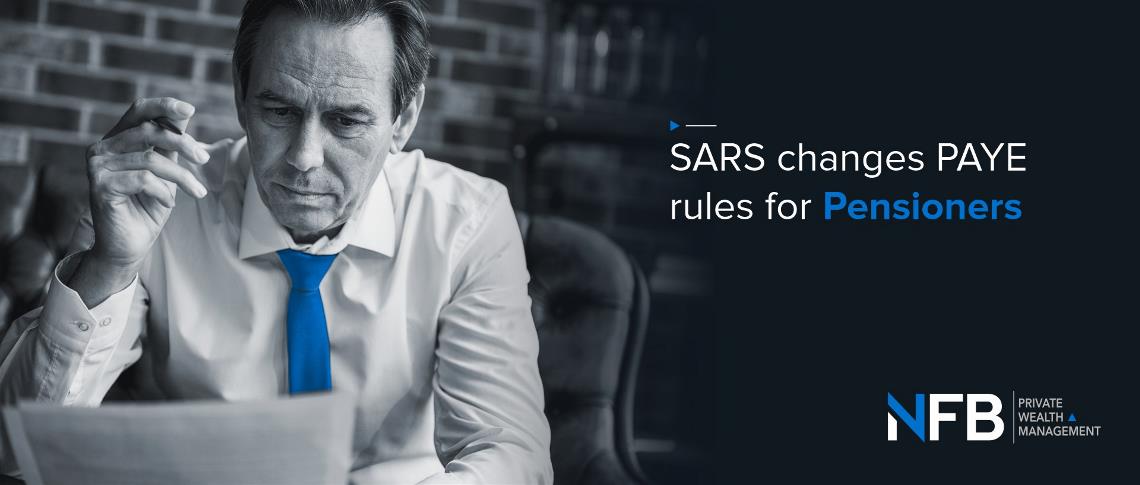SARS changes PAYE rules for Pensioners
Tax amendment for Pensioners with more than one source of income.


In February 2022 many South African pensioners received communication from both SARS and their pension fund providers relating to their annuities and the income tax rate applied to the income derived from them.
As per these communications, the current PAYE rates applied to income when there is only one source have remained unchanged. However, in the case of those pensioners who were contacted, SARS had identified they had other revenue streams over and above the annuity income paid by the pension fund administrator.
Alternate sources can range from an additional annuity income from another registered provider to rental income or supplementary money from a part-time job. Generally, the pension fund administrator is unaware of this and any employer of a part-time employee does not take annuity income into account. The result is that each would only deduct income tax using the PAYE scale based on the income they are paying.
This led to a shortfall in the income tax that the pension fund administrators recovered from the living annuity/pension, as the administrators thereof. SARS has, therefore, informed the various institutions and pension fund administrators where a higher tax rate should be applied due to other sources of income, based on the most recent tax return filed by the annuitant/pensioner. Most institutions have been able to apply the SARS directive regarding these new tax rates on annuity incomes with effect from April 2022.
In many cases, this recent move by SARS was unexpected and has had a negative impact on some pensioners’ ability to live from month to month. Pensioners who are affected by this change – and who are concerned that they will end up with a large tax debt payable to SARS after assessment of their income tax return – can request that their administrators withhold tax at a higher rate than the PAYE rate. This is already being done by some who have been proactive and wanted to prevent the annual shortfall.
Those pensioners who need to may request that the administrator/institution apply the normal PAYE rate (thereby opting out of the directive tax rate). They must, however, be aware of the fact that should they opt out of the directive tax rate, the PAYE tax withheld by the administrator for the 2022/2023 tax year may be insufficient to cover their tax liability upon assessment. It is, therefore, important that they consult their tax practitioner or accountant before deciding whether to opt out or not.
Should pensioners have any queries related to the above, or if they need assistance with changing their applicable tax rate, they should contact their advisor for assistance.













